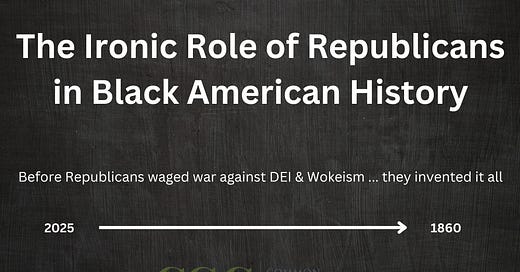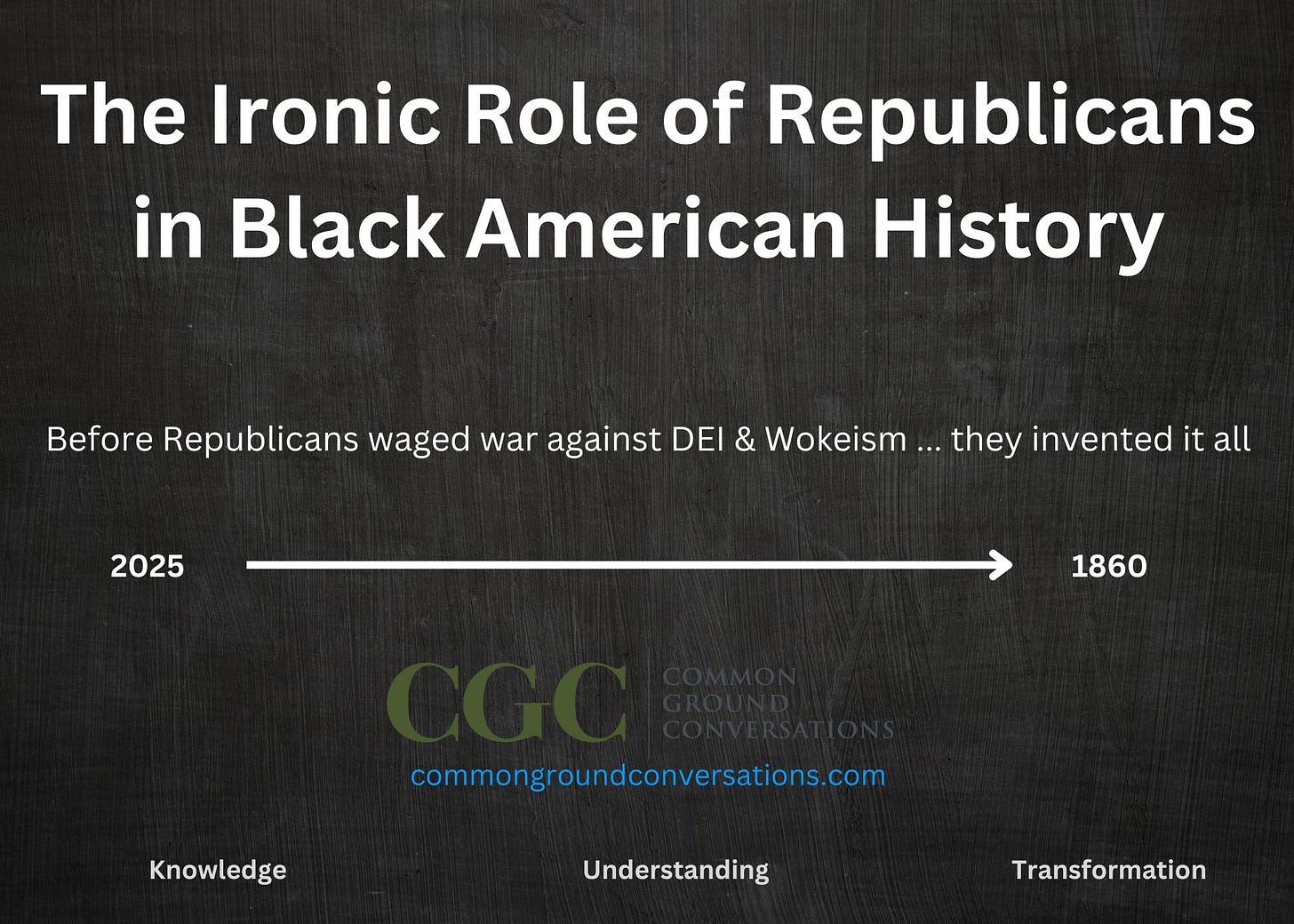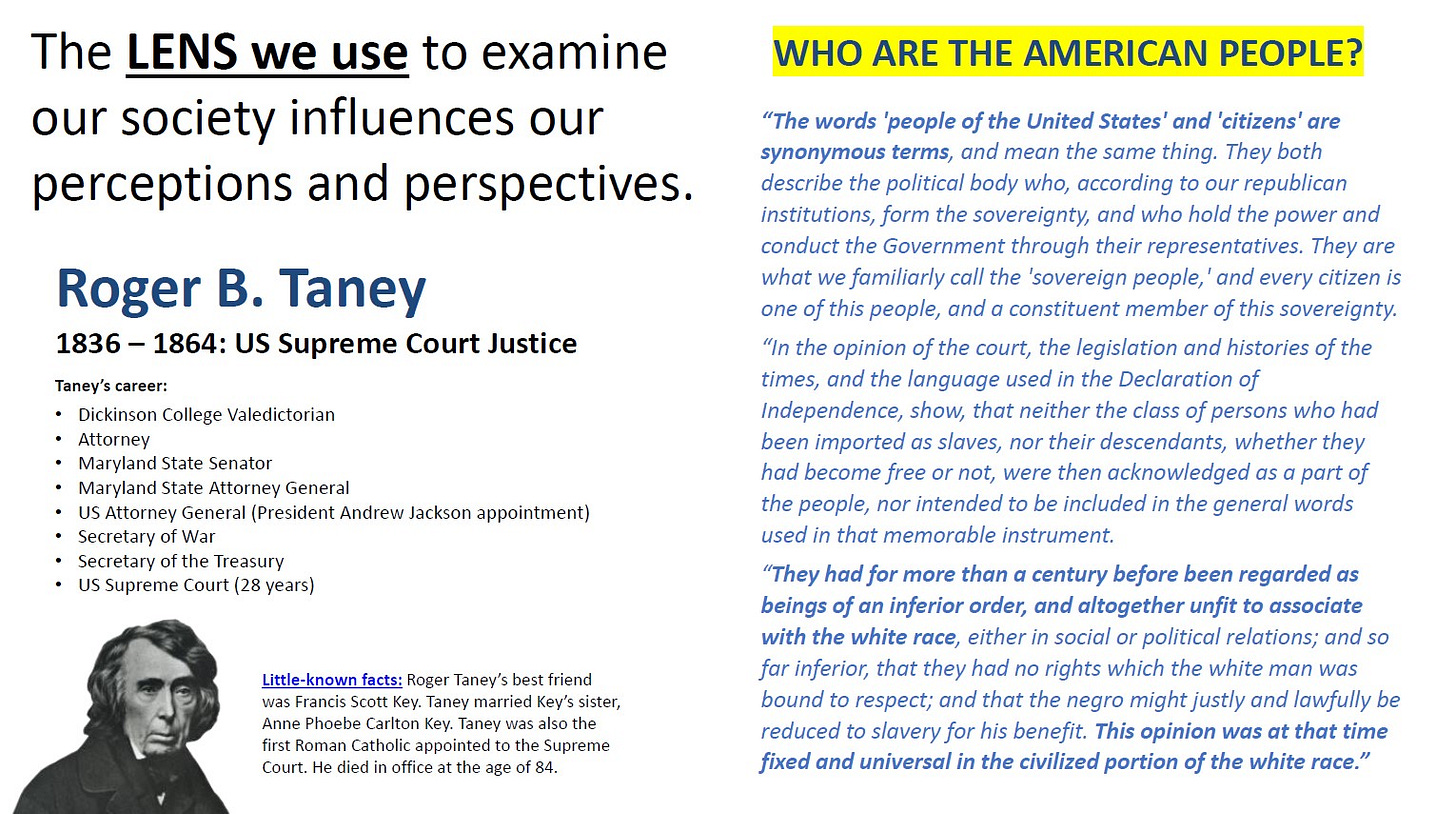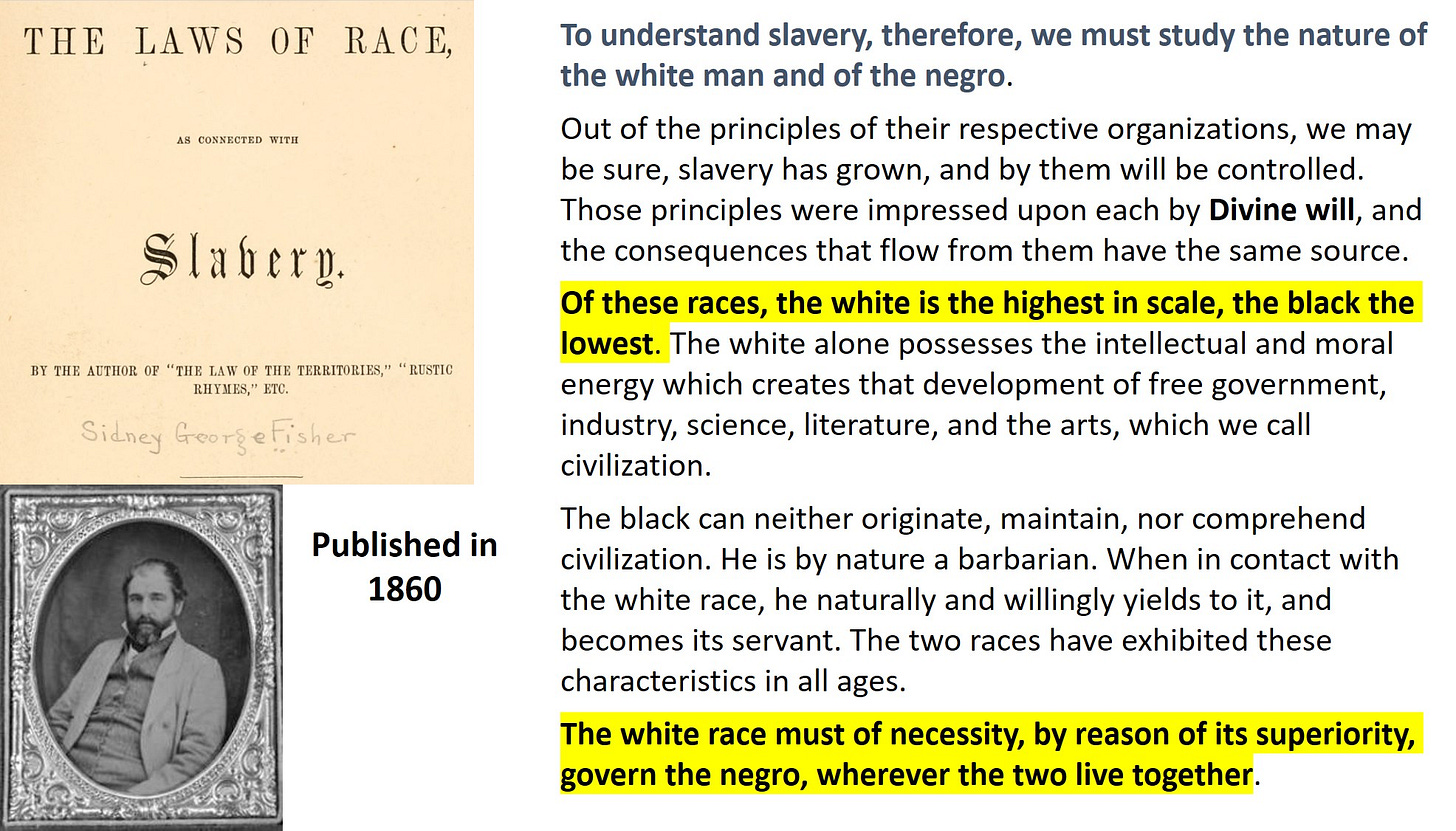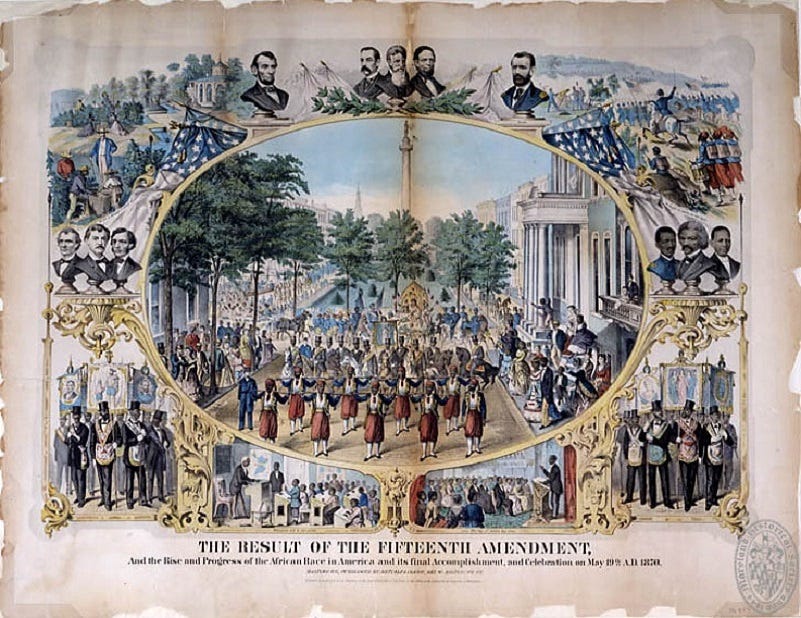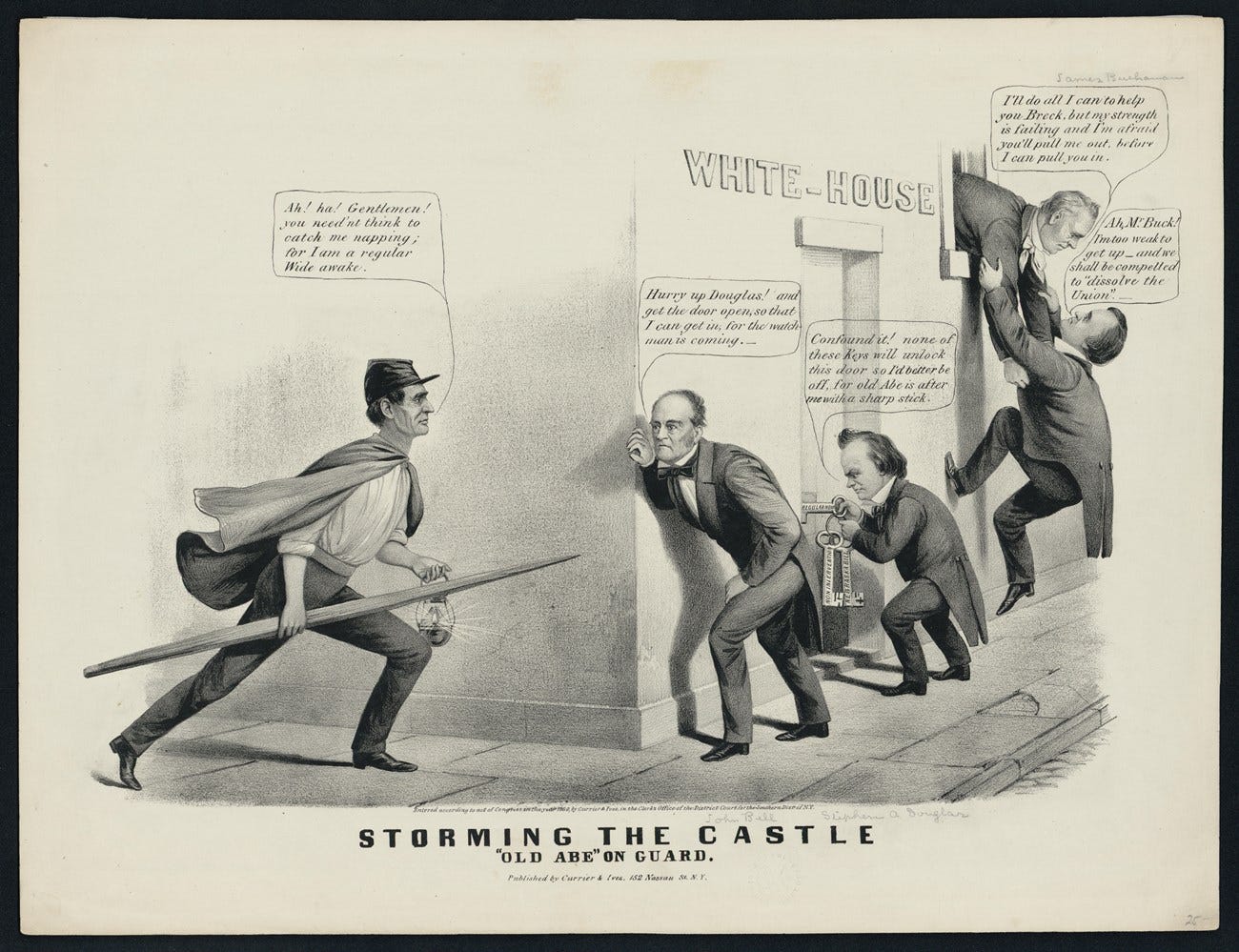CGC Journal - February 2025 Black History Month
We're Building a Co-learning Community of Empathetic Societal Change Agents
FEBRUARY 2025 | ISSUE 19
TABLE OF CONTENTS:
Current Events - The Ironic Role of Republicans in Black American History
Emily’s Corner - Can we talk about race?
Talking With Kids - Envisioning and designing our society
Recommended Resources - New resources recommended every month
The Ironic Role of Republicans in Black American History
Before Republicans waged war on ‘DEI’ & ‘Wokeism,’ they invented it all
By Mike Green
This year is the 49th Black History Month, which was formally established in 1976 by Republican President Gerald Ford. But the practice of studying Black American history goes farther back…as does the Republican Party’s role in Black history.
In 1915, Carter G. Woodson, a Harvard-educated historian (second Black man to graduate from Harvard with a PhD; W.E.B. Du Bois was first) and author of the “Miseducation of the Negro,” co-founded the Association for the Study of Negro Life and History. His organization created Black History Week in 1926, which eventually evolved to become Black History Month in 1976 due to President Ford.
On February 1, President Donald Trump signed a proclamation naming the month of February Black History Month, which each of his predecessors did dating back to President Ford. The irony of this year’s presidential proclamation is that it was issued by a man who adamantly stands against Diversity, Equity and Inclusion (DEI) programs that the Republican Party was the first to introduce in American history.
The words Trump wrote made a mockery of the annual tradition. Here’s an excerpt from Trump’s Black History Month Proclamation:
“Today, I am very honored to recognize February 2025 as National Black History Month. American heroes such as Frederick Douglass, Harriet Tubman, Thomas Sowell, Justice Clarence Thomas, and countless others represent what is best in America and her citizens.”
In his proclamation, Trump lumped together Frederick Douglass (1818 – 1895) and Harriet Tubman (1822-1913) with Thomas Sowell and Justice Clarence Thomas. The first two, who made indelible marks in U.S. history by influencing an inclusive transformation of America in the 19th century, would’ve likely never cavorted with the second two, who are ideologically aligned with the enemies of Black progress in the 21st century.
In case you’re wondering how 21st century ideological enemies of Black progress are aligned with 19th century enemies of Douglass and Tubman, Trump provides a strong clue. Trump reveres 19th century President Andrew Jackson (POTUS 1829-1837), who served as president during the lifetimes of Douglass and Tubman, and was a stalwart enemy of Black progress in a nation comprised of a whites-only citizenry. Looking back from today, it is hard to imagine that the United States was a White America. But the founding fathers and the institutions of power, wealth and influence were quite open and overt about the America they created … and for who they created it.
President Jackson’s belief in racial hierarchy (valuing and devaluing humans by the mythological construct of race) and white supremacy was demonstrated in his profound mistreatment of Native peoples and the ingrained institution of enslavement of African peoples, from which he directly benefited as a slaveholder. Jackson’s speech regarding the Indian Removal Act ought to be required study in every classroom at every grade level. Jackson’s ideology was captured best in Sidney George Fisher’s popular book, “The Laws of Race, As Connected with Slavery,” published in 1860.
Donald Trump has succeeded in combing the worst of the 19th and 20th centuries’ “America First” mantra as a euphemism for messaging the ideology of white supremacy in the 21st century, which fosters a sacrosanct belief that America was built by and for White Christians. Andrew Jackson, a Democrat, believed in the same Manifest Destiny that Trump, a Republican, trumpets today.
Moreover, Trump and his supporters are seemingly unaware of the role that “Radical” Republicans played in advancing the ideals of Douglass and Tubman through congressional acts, while conversely, Sowell and Thomas advance the ideals of modern-day conservative Republicans, which are opposite of the ideals pushed for by “Radical” Republicans during an era when the progressive voices of Douglass and Tubman were influencing a White-led Congress toward transforming a White America into a more Diverse, Equitable and Inclusive America.
At the same time that Trump pretended to honor Black History Month, he ordered the Department of Defense to stop acknowledging all “identity months.”
But rather than bemoan the predictive actions of an administration that was ushered into power (again) by a majority of White voters, it is instructive to gain a deeper understanding of the pivotal role that a minority faction of the Republican Party played in Black American history.
1860: ‘Wide Awake’ Young White Republicans
Abraham Lincoln was boosted into popularity in the 1860 election through an organized effort of young White Republicans known as the Wide Awakes. Given Lincoln’s role in opening the door for enslaved Black people to fight for their own freedom, it should be noted that the Wide Awakes played a pivotal role in getting him elected. Ironically, today’s modern-day conservative Republicans despise wokeism.
1865: DEI and Radical Republicans


